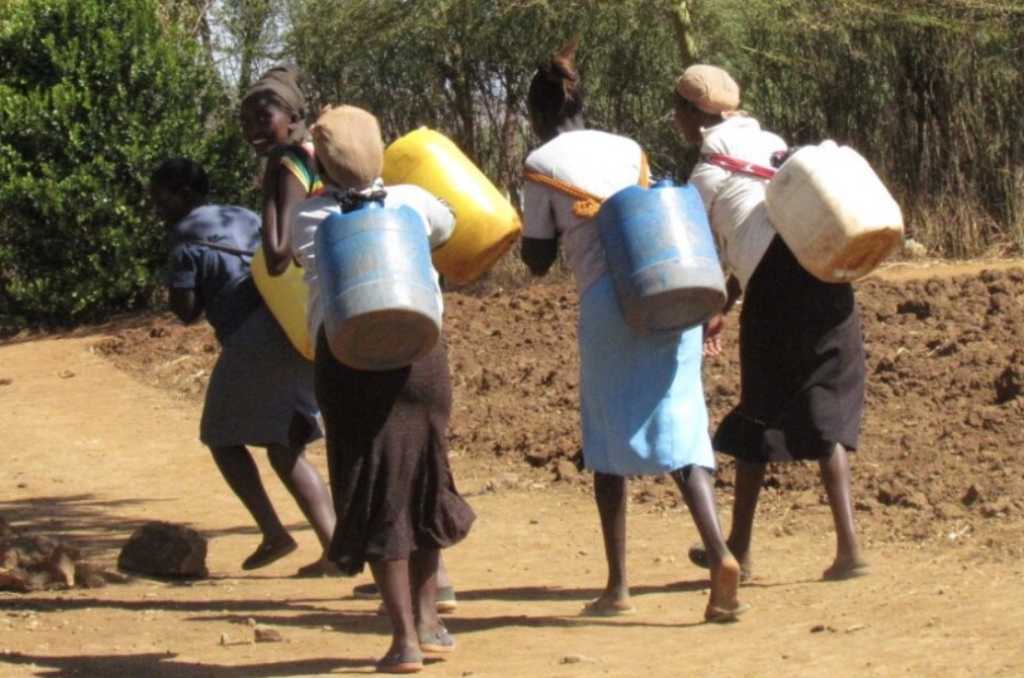Samuel Irungu lives today in the bustling city of Seattle, Washington, but still recalls growing up in a starkly different place: a small, rural village in Kenya, where there was no running water and where securing hydration was a complex, daily task mainly left to women and children as young as four to complete.
Irungu, who now works as a web developer for Christian humanitarian group World Vision, told Faithwire how he’d routinely have to carry water for miles each day from its river source to his home village — a task that likely seems unimaginable to the vast majority of Americans who take running water for granted.
READ: Chris Pratt Talks Faith and Family During Hollywood Walk of Fame Speech
But for many around the globe, water is a luxury that takes much effort to obtain.
“I grew up in Lower Subukia, a remote rural (area in) Kenya in the Rift Valley province of Nakuru County, approximately 133 miles North West of the Kenyan capital Nairobi,” Irungu explained. “That area receives scarce rainfall because of its geographical location, situated on the floor of the Rift Valley and located on the leeward side of Mount Kenya.”

Naturally, that means that severe droughts and dry spells are common to the area, forcing locals to walk as far as needed to reach the best and nearest water sources. Irungu said that he and his siblings would have to trek between 2 and 5 miles over the course of three to four hours each day to reach the nearest rivers.
“It’s predominantly the responsibility of women and children to fetch water. Children from as early as age of 4 or 5 are trained using small containers on how to fetch and carry water. They would accompany adult women in this noble ‘mission,'” Irungu said. “Fetching water is done early in the morning or late in the evening (to protect people) from the scorching sun.”
In Irungu’s own familial experience, water was typically collected in the evenings, though he said that, regardless of timing, the process was and is profoundly exhausting — and even dangerous. In fact, Irungu said it’s not uncommon for sickness and death to unfold due to the burdens that come along with retrieving and transporting the water.
“I recall an expectant friend of my mom died when she was almost due because of the strain of carrying water for her family,” he said. “Over the long-term, carrying water on their backs creates a lot of health problems for women.”

And the challenges extend well beyond the aforementioned issues. In some instances, communities become protective and defensive, fighting with outsiders and attempting to prevent them from retrieving water from local sources; other times, residents struggle to ensure that water-borne diseases don’t cause mass illness. Plus, there’s the costs associated with properly retrieving the water.
“This process is not only exhausting and time consuming but also economically expensive to the locals,” Irungu said. “Can you imagine going to fetch water at varied distances barefoot in a scotching sun every day? Some of the costs include having to buy jerrycans and other water containers to ease the burden.”
In Irungu’s case, his plight for survival during his younger years was even harder, as he and his siblings lost both parents at an early age. That tragic dynamic meant that the responsibility of securing water, food and other resources was placed on the children’s backs. But despite those challenges, they persevered.
“Help came from unexpected places,” he said, explaining how he and his siblings survived despite the circumstances. “Guardians and sponsors from USA and Europe for each of my siblings and myself came through friends and well-wishers. We are better off than we started and each of my siblings have had a faith success story.”

Irungu was able to receive an education before coming to the U.S. as an international student at Eastern Oregon University in La Grande, Oregon. He later decided to settle in America, realizing that life here was easier to navigate than it was in his homeland.
He’s now working for World Vision — an organization that has made a big difference in Kenya, installing piped clean water for use by both animals and humans. It’s work that has “reshaped and redefined the way of life to existing communities,” Irungu said, noting that his own village has been positively impacted as well.
“Working for the children and marginalized and impoverished communities out there like my home area is so rewarding,” he said. “You have no idea how fulfilling it is to work in a place that is geared to the well-being of your birthplace.”
Find out more about World Vision’s work around the globe here.
—
Other Must-Read Stories:
– What This NY Times Reporter Said Trump is ‘Doing Better Than Obama’ Might Make You Do a Double Take
– Chris Pratt Talks Faith and Family During Hollywood Walk of Fame Speech



